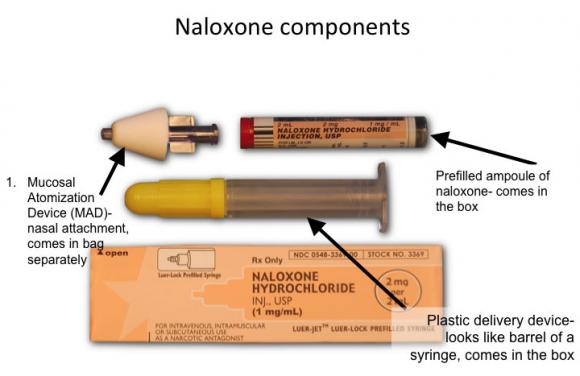PROVIDENCE, R.I. [Brown University] — U.S. Attorney General Eric Holder has released a new toolkit to help police around the country make better use of naloxone, a drug that can restore breathing in people experiencing an opioid or heroin overdose. Brown University and Lifespan researchers Dr. Jody Rich, professor of medicine and epidemiology, and Traci Green, assistant professor (research) of emergency medicine and epidemiology, contributed directly to the toolkit’s development.
The Justice Department described the toolkit as “a one-stop clearinghouse” that includes 80 distinct resources such as training guides and standard operating procedures for use of naloxone. Rich, who was one of a few dozen experts convened by Holder in July to launch the effort, said Holder’s action helps to establish first-responders carrying naloxone as a national standard of care.
Rich credits Dr. Michael Fine, director of the Rhode Island Department of Health, and Col. Steven O’Donnell for having already done that in Rhode Island. In recent years, he said, both national and local governments and organizations have made important strides in fighting opioid addiction and overdose.
“We are in the midst of an epidemic of overdose deaths where first responders have the ability to have a tremendous impact,” said Rich, who, like Green has appointments in the Alpert Medical School and the School of Public Health. “There is nothing more fundamental to law enforcement’s basic mission to serve and protect than this. This is saving lives.”
Green’s recording included
Among the materials in the toolkit is an eight-minute interview with epidemiologist Green. In the podcast-like recording, Green describes extensive efforts around the state to train law enforcement on the nature of addiction and overdose, the use of naloxone, and in community outreach
“Addiction is a disease, recovery is possible, and treatment is available and that starts with saving someone’s life with naloxone,” she says in the interview.
Evaluation with 160 of the 600 officers trained around the state has shown that training programs have made significant differences, Green said. Her research has noted improvements in the response to overdose, including naloxone use, and reducing confusion about Rhode Island’s Good Samaritan law, which provides limited immunity for people who call 911 to report drug overdoses.

